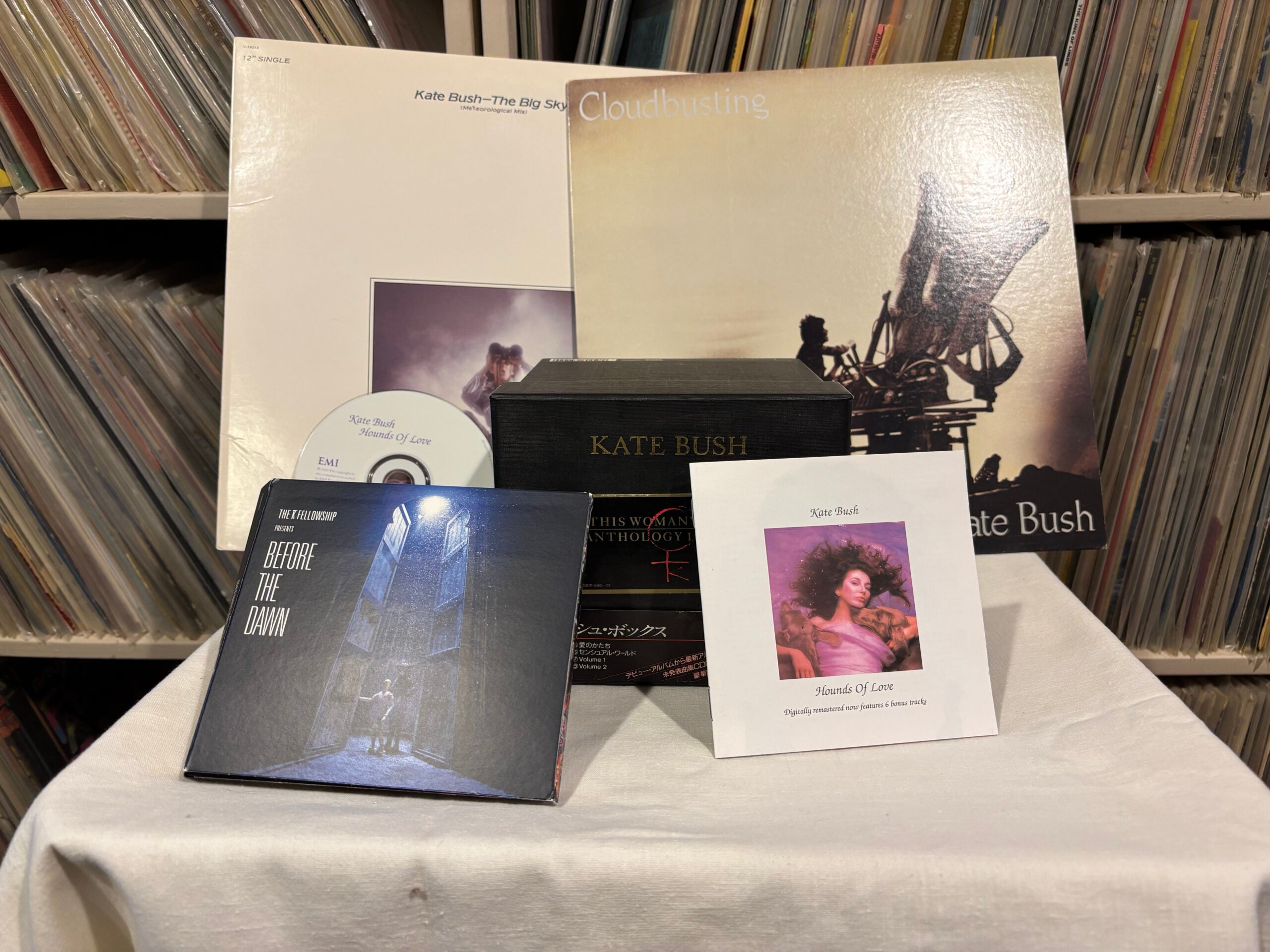Why are some of our favorite songs to listen to so sad? We look into the science behind this paradox and ask you to share your favorite sad songs. We also talk to a photographer whose latest project pairs old postcards of Chippewa Falls with pictures of the same locations today. And we cover one of today’s top headlines.
Featured in this Show
-
Justice Department Tries To Block $85 Billion Media Merger
President Trump’s Department of Justice announced a lawsuit to block an $85 billion merger between AT&T and the parent company of CNN, Time-Warner. A journalist talks to us about the merger, the politics around it, and why the Justice Department finds it objectionable.
-
Photo Book Explores Chippewa Falls, Past And Present
Wisconsin photographer David Tank’s latest book explores Chippewa Falls by pairing antique postcards with his own shots of the same locations today. He joins us to talk about the challenge of replicating images from the past, how the city has changed, and what he’s learned about its history.
Are there places in your community that have changed drastically or been especially well-preserved? If you enjoy looking at old photos of your area, what draws you to them? What do you think they can teach us about progress and development? Let us know on the Ideas Network Facebook page or email us at ideas@wpr.org.
-
Why Do We Love Sad Music?
Listening to a certain song can give us chills, and music has been known to change our behavior; from helping to cure insomnia, to getting shoppers to spend more money at the mall.
But what about “sad” sounding music? A recent study suggests that listening to sad music causes the mind to wander, leading to self-reflection, which ultimately may help us actually feel better.
We hear from a musician and scientist about why sad sounding music may actually make us feel better.
Do you enjoy listening to “sad” music? What is your all-time favorite sad song?
Let us know by emailing ideas@wpr.org
You can also contact us here:
Tweet: @centraltimewpr
Facebook: https://www.facebook.com/theideasnetwork/Call during showtime: 1-800-642-1234
-
Just Why Do We Love Sad Music?
Let’s face it — we’ve all turned to a sad song or two to help get us through the day every now and then.
And even though the artist might be singing about heartbreak, or the guitarist is playing in a minor key, it turns out we often have a pleasurable reaction to this kind of music.
Why?
A recent study from the University of Berlin suggests listening to sad music actually causes our minds to wander, which is a good thing. The study indicates this mind wandering lead to self-reflection, which ultimately may actually help us feel better.
But does that tell the whole story?
What we know for sure is music has a powerful effect on our emotions. If you’d like to put that to the test, try watching a movie with the music stripped out.
“You’ll find yourself being far less involved emotionally,” said scientist and musician John Powell. “In fact, music is one of the main emotional transmitters during a film. It really highlights all the effects they try to give you visually.”
Powell is also the author of “Why You Love Music: From Mozart to Metallica — The Emotional Power of Beautiful Sounds.”
He says sad music gives us a chance to explore sadness in our lives without actually being exposed to genuine sadness.
But to fully understand what’s going on in our brains here, Powell says it’s important to realize sad music isn’t inherently designed to make you sad.
“You have to bear in mind that all music, no matter what it purported to give you emotionally, is designed to be pleasurable,” he said. “So even sad music is designed to be pleasurable. If there really was genuine music around in the world that made you feel miserable, it would be very unpopular.”
That said, there’s an interesting difference between being emotionally connected with happy music versus sad music.
“When you’re listening to happy music, you recognize that the person who wrote it and performed it designed it to be happy,” Powell said. “And also, you automatically get happy about it.”
But when you hear sad music, Powell says something peculiar happens.
“You recognize that it’s sad, you recognize that somebody wrote this and sang this with sadness in mind, but you don’t get involved,” he said. “You don’t involve your own emotions in the sadness. You sort of observe it as a sad event or a sad description, but you keep your distance, and you remain pleased by the music. And in fact, so you end up being quite happy about the whole thing.”
From a musical perspective, a song can be “sad” because it’s written in a minor key, which we’ve culturally established as the “sad key.” Or, it could be the speed of the song.
“The main musical signal that gives you a clue as to what the music is supposed to be doing is its speed, and you’ll find that sad music is nearly always slow, because if you speed up the music … it sounds happier and happier,” Powell said.
And then there are the lyrics. Who hasn’t thought “this could be me” at some point when they’ve heard a song about heartbreak?
Again, says Powell, it boils down to that distance factor.
“So you might empathize with the singer, who’s got this dying dog … or a love affair gone wrong,” he said. “And you might empathize with that, but you’re not deeply involved yourself.”
While some songs are straight up “sad” songs, other peppier songs can also evoke feelings of sadness, thanks to the memories and association we attach to them.
“You can actually get genuinely sad from a happy song if it evokes a memory of happier days,” Powell said. “If you recently got divorced, and then a song that comes on the radio that was your tune, that can make your genuinely miserable, even though it could be a really happy tune. One of the ways music does evoke emotions in humans is from the relationship between your memories and what was happening at the time in the music.”
So, barring any of those possible painful songs, go ahead and listen to all the sad music you want.
If you’d like to indulge yourself further, we’ve included a playlist of some of Wisconsin Public Radio staffers’ favorite sad songs. It’s OK to cry.
Episode Credits
- Rob Ferrett Host
- Haleema Shah Producer
- Dean Knetter Producer
- Karl Christenson Producer
- Derek Thompson Guest
- David Tank Guest
- John Powell Guest
Wisconsin Public Radio, © Copyright 2026, Board of Regents of the University of Wisconsin System and Wisconsin Educational Communications Board.

